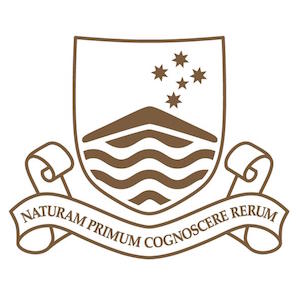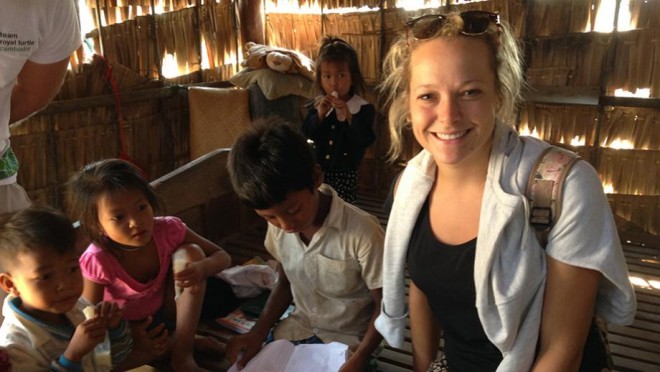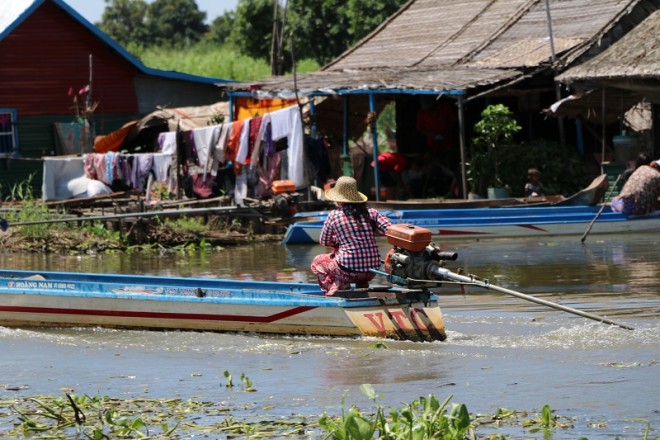How Australian Engineering Students Are Helping People Out In Rural Cambodia
It's probably more impressive than what you did straight after uni.


It's time to discover your passion
This article is brought to you in partnership with ANU.
–
With jackhammers taking apart the city of Phnom Penh behind her, Rebecca Watts, the Project Facilitator of the Appropriate Technology Initiative for Engineers Without Borders, talks to us via Skype about her time in Cambodia, her involvement in the program, women in engineering more generally, and how much joy she finds in her work.
I’ve been in Cambodia since November last year; I came a week after I finished my undergraduate degree at ANU. Mostly I spend a lot of time out in the field, moving between remote Cambodian communities working on a project which is all about giving the communities access to solar energy and education about how to use it. When I’m back here in Phnom Penh, I source good quality solar panels and organise training.
The practical application of my placement is more than just putting in the technology, it’s also about working really closely with the communities to figure out what they want and need. We identified that access to electricity is the second most important priority for the areas we’re working in — the first was learning English.

–
The Big Effects Of Small Projects
Solar energy is the best way to help with their electricity problems because the communities are so remote, they don’t have access to the grid. We can arrange panels to fit whatever their energy needs are — charging mobile phones or powering lights, usually. We also run education programs so they understand the technology a bit. At the moment, I’m working with a local guy to train him up as a technician. We’re always going back to the communities we’ve worked with so we get to see the impact that the extra hours of light affords these people. One woman is now running English and maths classes from her house at night just because she has an extra light.
A lot of the women I’ve spoken to have told me that it’s changed the entire shape of their days. Now they can start preparing dinner after six instead of four in the afternoon because they actually have light in the kitchen. They can extend their whole day and that doesn’t always mean extra work — it means they can spend more time with their families and communities. It’s so rewarding seeing how facilitating these simple changes make this insanely huge difference. Seeing that stuff keeps you energised to keep going with it.
Being here has totally opened up my eyes to the things you can do as an engineer, like really using the skills you learned studying for these really practical, meaningful and important things. Decentralised solar solutions and mini-grids — these things genuinely change peoples lives. We’ve also been engaging local suppliers in Phnom Penh to design systems that are appropriate to rural Cambodia and helping where we can.
Mostly we do “capacity building”: when a team of engineers work longer-term with local organisations towards these goals. This is done through developing innovative and sustainable technologies that are simple to use, easy to install and hopefully have a long life span. Because of this, a lot of the other people I work with in Phnom Penh are in water, sanitation, housing, and bio gas (which is awesome; it involves using a bio-digester which is fuelled by cow dung).

Engineers Without Borders also runs a program for sanitation.
–
Cultural Differences (Both At Home And Abroad)
I think the most surprising part about living here has been finding out how totally integrated the communities are, like you’ll go to somebody’s house and there’ll be a bunch of kids running around but none of them will belong to the person who lives there — stuff like that. Everything is done within the communities — even meals. My translator always asks me why barangs (white people) always eat alone, he thinks it’s such a weird thing to do.
I love how connected they are and you can see it working out with the solar stuff we’re doing. One person wires their lights up in a certain way, then her sister will copy, then her cousin, then her nephew… They all share the knowledge so freely through the community. That feels like such a stark difference to Australia.
Engineers Without Borders is really involved in educating Aussie kids about humanitarian engineering too; they have university students go into high schools and run workshops, plus they have a design summit here in Cambodia for people studying. There are so many options, depending on what you’d like to do.
I think this is especially important when it comes to getting more women into the industry. It’s been such a boy’s club for so long, I think it’s still something like a 80/20 split when it comes to regular engineering, but in humanitarian engineering there are far, far more women. On the design summit, here in Cambodia, it’s a 50/50 split of men and women, and I think that speaks volumes about the kind of work we’re doing.
I’m super passionate about making it known that there are plenty of really cool, interesting, empathetic jobs available in engineering for women. Wouldn’t it be great if we could change the stereotype of what “a real engineer” is, from the guy wearing steel-capped work boots to a woman working in a rural refugee camp?
–
ANU is a research-intensive university of global standing specialising in discovery and public policy. Get along to their 2016 Open Day this weekend, August 27 to find out more.